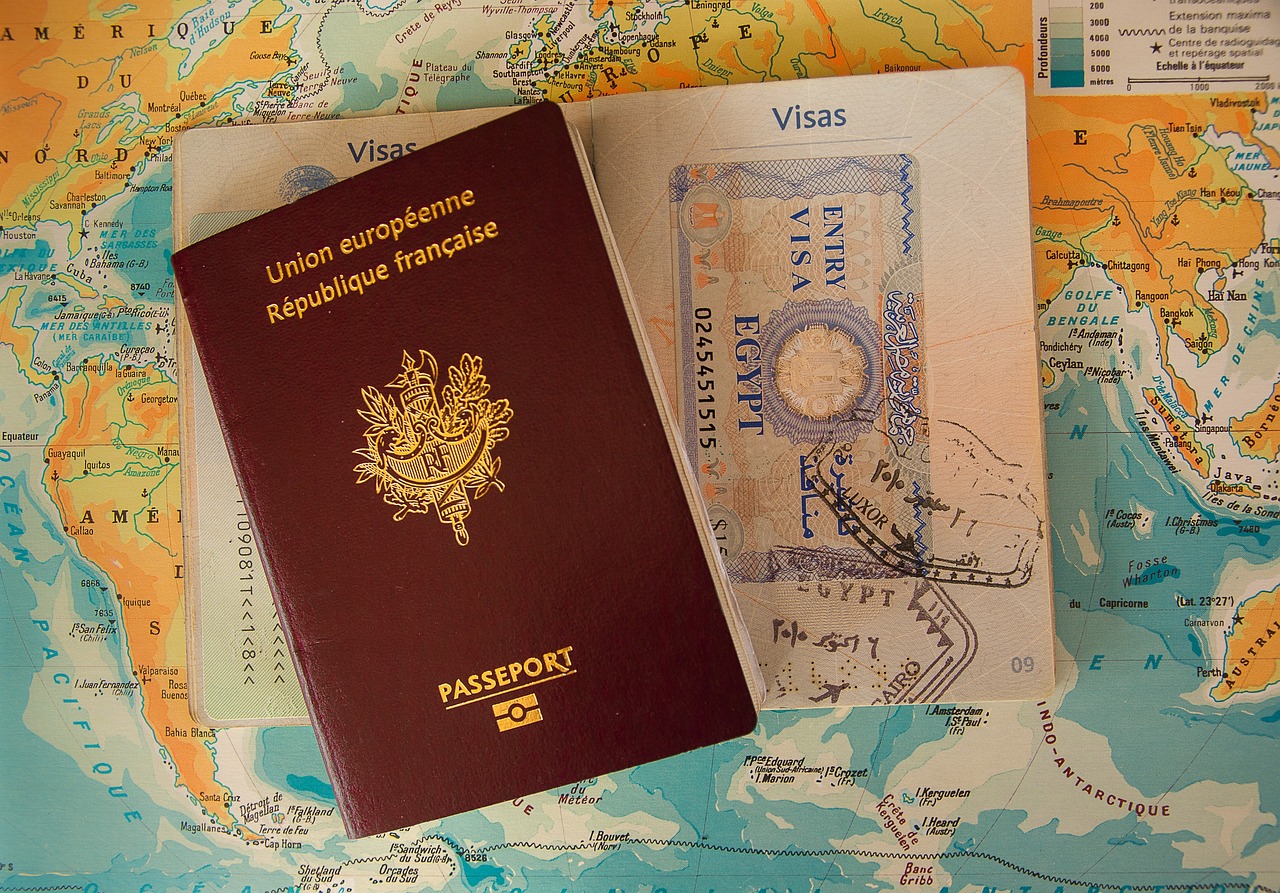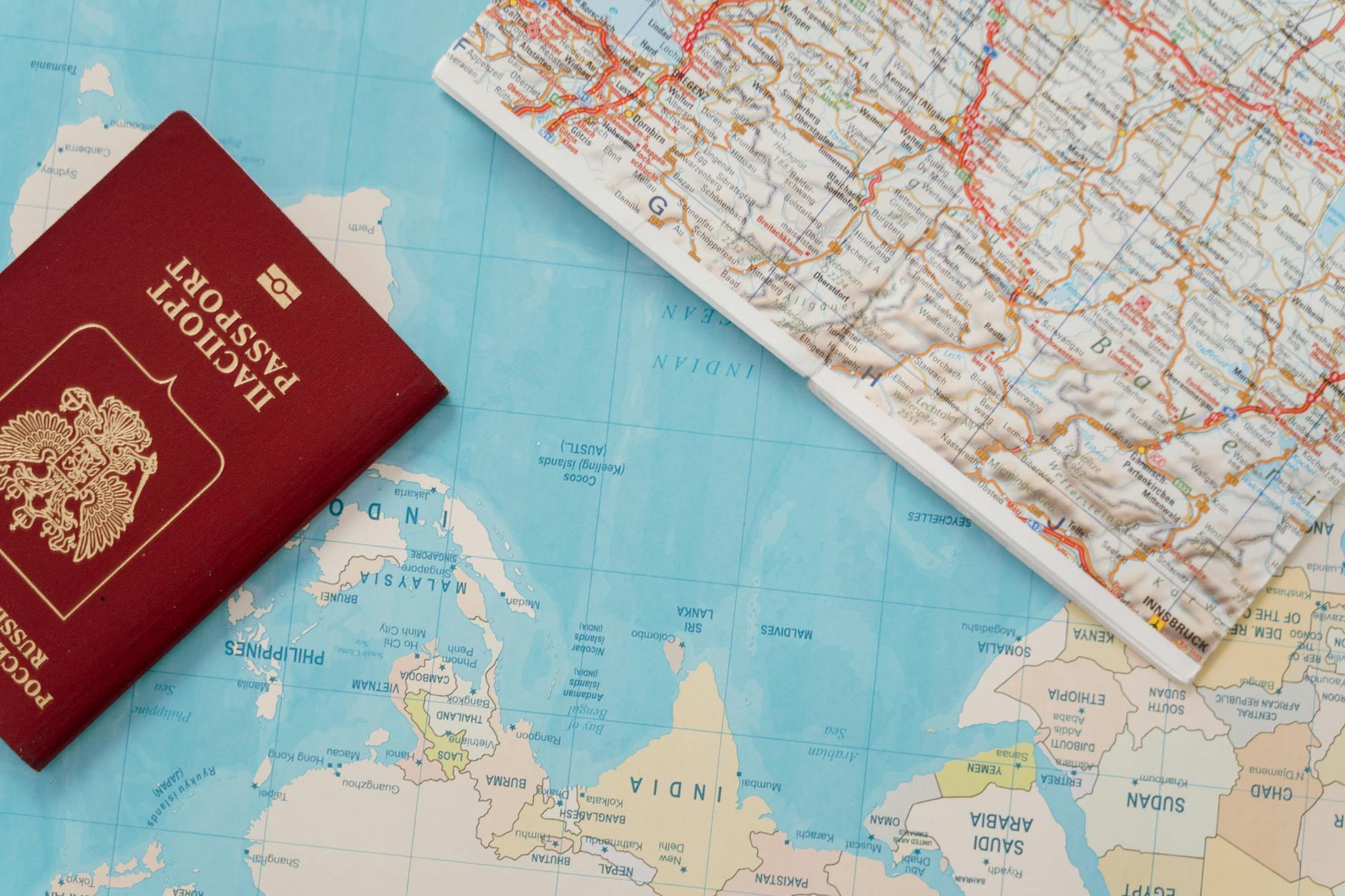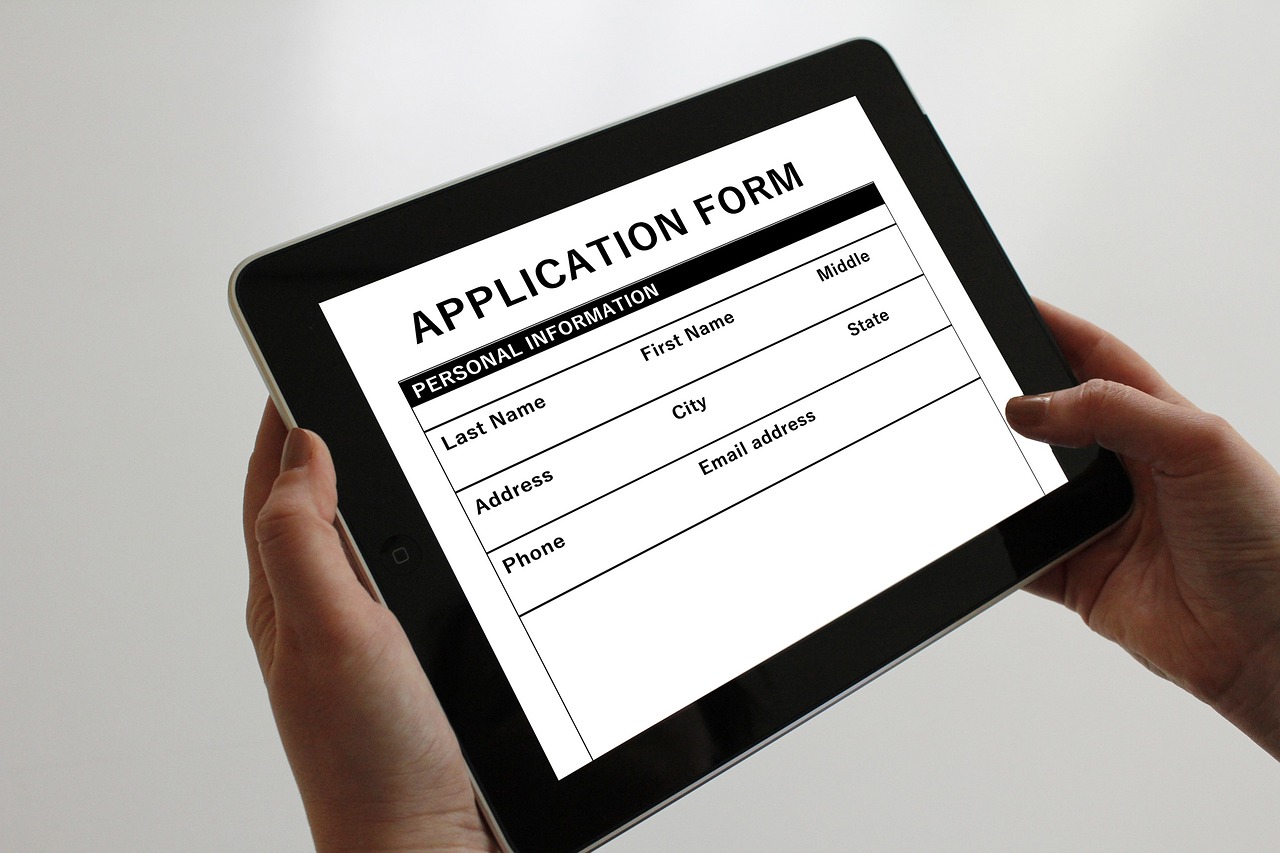Are you dreaming of exploring the vibrant streets of Bangkok, lounging on pristine beaches in Phuket, or immersing yourself in the rich culture of Chiang Mai? 🌴🇹🇭 Thailand’s allure is undeniable, but before you can embark on your Thai adventure, there’s one crucial step: obtaining your visa.
The visa application process can seem daunting, with various types of visas, a laundry list of required documents, and different application methods to choose from. It’s enough to make even the most seasoned traveler’s head spin! But fear not – we’re here to guide you through the maze of Thai visa applications, ensuring your journey to the Land of Smiles begins smoothly.
In this comprehensive guide, we’ll walk you through everything you need to know about applying for a visa in Thailand. From understanding the different visa types to gathering the necessary documents, choosing the right application method, and even extending your stay once you’re there – we’ve got you covered. So, let’s dive in and demystify the Thai visa application process, shall we?
Understanding Thai Visa Types

Tourist Visa
Thailand’s Tourist Visa is ideal for those planning short-term visits. It allows stays of up to 60 days, extendable for an additional 30 days. This visa is perfect for holidaymakers, sightseers, and those visiting friends or family.
| Visa Type | Duration | Extendable | Purpose |
|---|---|---|---|
| Tourist Visa | 60 days | Yes, up to 30 days | Tourism, leisure |
Non-Immigrant Visa
For those with specific purposes beyond tourism, the Non-Immigrant Visa offers various categories:
- Business (B)
- Education (ED)
- Marriage (O)
- Retirement (O-A)
- Volunteering (O)
Each category has its own requirements and duration, typically ranging from 90 days to one year.
Special Tourist Visa (STV)
Introduced in response to the COVID-19 pandemic, the STV allows for longer stays:
- Initial 90-day stay
- Extendable twice, each for 90 days
- Total possible stay: up to 9 months
Transit Visa
For travelers passing through Thailand:
- Type TS: 30 days for sports or tourism activities
- Type C: 30 days for crew members
Retirement Visa
Designed for retirees aged 50 and above:
- One-year stay, renewable annually
- Requires proof of financial stability
- Must report to immigration every 90 days
Now that we’ve covered the main visa types, let’s move on to the essential documents you’ll need to gather for your application.
Gathering Required Documents

Passport and Photos
When applying for a Thai visa, your passport and photos are crucial documents. Ensure your passport is valid for at least 6 months beyond your intended stay. You’ll need recent passport-sized photographs (usually 4×6 cm) with a white background. Most visa types require 2-4 photos.
Proof of Funds
Thailand requires evidence that you can support yourself during your stay. This typically includes:
- Bank statements (last 3-6 months)
- Credit card statements
- Traveler’s checks
The required amount varies based on visa type and duration. For example:
| Visa Type | Minimum Funds Required |
|---|---|
| Tourist | 20,000 THB per person |
| Education | 20,000 THB per month |
| Retirement | 800,000 THB in savings |
Accommodation Details
Provide proof of where you’ll stay in Thailand. This can include:
- Hotel reservations
- Rental agreements
- Letter of invitation (if staying with friends/family)
Travel Itinerary
Submit a detailed plan of your stay, including:
- Flight bookings (arrival and departure)
- Planned activities or tours
- Inter-city travel plans (if applicable)
Supporting Documents for Specific Visa Types
Different visas require additional documents:
- Work Visa: Employment contract, work permit
- Education Visa: Acceptance letter from Thai institution
- Retirement Visa: Proof of pension, marriage certificate (if applicable)
- Business Visa: Invitation letter from Thai company, business registration documents
Remember to check the specific requirements for your visa type as they may change. With these documents prepared, you’re ready to move on to choosing the right application method for your Thai visa.
Choosing the Right Application Method

A. Online Application
The online application method for Thai visas has gained popularity due to its convenience and efficiency. Here’s what you need to know:
- Visit the official Thai e-Visa website
- Create an account and fill out the application form
- Upload required documents
- Pay the visa fee online
- Receive confirmation and track your application status
Benefits of online application:
- Time-saving
- Reduced paperwork
- 24/7 accessibility
- Faster processing in some cases
| Visa Type | Online Eligibility |
|---|---|
| Tourist Visa | Yes |
| Business Visa | Yes |
| Education Visa | Limited |
| Retirement Visa | No |
B. In-Person at Thai Embassy or Consulate
For those who prefer a more traditional approach or need assistance, applying in person at a Thai embassy or consulate is an excellent option:
- Locate the nearest Thai embassy or consulate
- Schedule an appointment (if required)
- Prepare all necessary documents
- Submit your application and pay the fee
- Collect your visa once processed
This method is particularly suitable for:
- Complex visa types
- Applicants with specific queries
- Those who need immediate clarification on requirements
C. Visa on Arrival (for eligible countries)
Visa on Arrival (VOA) is a convenient option for travelers from eligible countries planning short stays:
- Available at major international airports in Thailand
- Valid for stays up to 15 days
- Requires specific documents and fees
Eligible travelers should:
- Check the list of VOA-eligible countries
- Prepare required documents and fees
- Fill out the VOA form upon arrival
- Present documents at the VOA counter
While VOA offers flexibility, it’s important to note that it may involve longer wait times during peak travel seasons. For longer stays or frequent visits, applying for a visa in advance is recommended.
Now that we’ve explored the various application methods, let’s delve into the step-by-step application process to ensure you’re well-prepared for your Thai visa journey.
Step-by-Step Application Process

Filling Out the Application Form
When applying for a Thai visa, accuracy is crucial. Here’s a step-by-step guide to filling out the application form:
- Download the official form from the Thai embassy website
- Use black ink and write in block letters
- Ensure all fields are completed, leaving no blanks
- Double-check personal information for accuracy
- Specify the exact purpose of your visit
| Field | Tips |
|---|---|
| Name | Exactly as in passport |
| Passport number | Include all digits/letters |
| Proposed address in Thailand | Be as specific as possible |
| Duration of stay | Match with your travel plans |
Paying Visa Fees
Visa fees vary depending on the type and duration of your stay. Here’s what you need to know:
- Fees are typically payable in local currency
- Accepted payment methods: cash, bank draft, or money order
- Keep your receipt as proof of payment
Submitting Documents
Gather all required documents before submission:
- Completed visa application form
- Recent passport-sized photographs
- Valid passport with at least 6 months validity
- Proof of accommodation in Thailand
- Return flight ticket
- Bank statements (for certain visa types)
Attending the Interview (if required)
Some visa applications may require an interview. Be prepared by:
- Dressing professionally
- Bringing all original documents
- Arriving early at the embassy or consulate
- Being clear about your travel plans and purpose of visit
Remember, the interview is an opportunity to clarify any questions about your application. Answer honestly and concisely. With your documents in order and a clear understanding of the process, you’re well on your way to obtaining your Thai visa.
Tips for a Successful Visa Application

Double-Check All Documents
Before submitting your Thailand visa application, carefully review all required documents. Use this checklist to ensure you haven’t missed anything:
- Passport (valid for at least 6 months)
- Visa application form
- Recent passport-sized photos
- Proof of accommodation
- Flight itinerary
- Bank statements
- Travel insurance
Double-checking helps avoid delays and potential rejections.
Apply Well in Advance
Timing is crucial when applying for a Thai visa. Here’s a breakdown of recommended application times:
| Visa Type | Recommended Application Time |
|---|---|
| Tourist | 2-3 weeks before travel |
| Business | 4-6 weeks before travel |
| Education | 6-8 weeks before travel |
| Retirement | 8-10 weeks before travel |
Applying early gives you buffer time for any unforeseen issues or additional document requests.
Be Honest and Consistent
Honesty is the best policy when it comes to visa applications. Ensure all information provided is:
- Accurate
- Consistent across all documents
- Matches your passport details
Discrepancies can raise red flags and lead to visa denial.
Prepare for Possible Questions
Be ready to answer questions about your trip. Common inquiries include:
- Purpose of your visit
- Length of stay
- Accommodation details
- Financial capacity to support your stay
Preparing thoughtful responses demonstrates your genuine intentions and increases your chances of a successful Thailand visa application.
Understanding Visa Processing Times

A. Standard Processing
The standard processing time for Thai visas varies depending on the type of visa and the embassy or consulate where you apply. Generally, you can expect the following timeframes:
| Visa Type | Processing Time |
|---|---|
| Tourist Visa | 3-5 working days |
| Non-Immigrant Visa | 5-7 working days |
| Education Visa | 7-10 working days |
| Business Visa | 5-7 working days |
It’s important to note that these are average processing times and may vary based on factors such as application volume and completeness of documentation.
B. Express Service Options
For those who need their visa quickly, some Thai embassies and consulates offer express service options:
- Same-day service: Available for urgent cases, typically at a higher fee
- Next-day service: Faster than standard processing but less expensive than same-day
- 2-3 day service: A middle-ground option for those who need their visa sooner than standard processing
C. Factors Affecting Processing Time
Several factors can influence the processing time of your Thai visa application:
- Completeness of application
- Accuracy of information provided
- Type of visa requested
- Current workload at the embassy or consulate
- Peak tourist seasons
- Changes in immigration policies
To ensure the fastest possible processing time, double-check all documents and information before submitting your application. Now that you understand the processing times, let’s explore some tips for a successful visa application.
Extending Your Visa in Thailand

Eligibility Criteria
To extend your visa in Thailand, you must meet specific eligibility criteria. These criteria vary depending on your current visa type and the reason for extension. Here’s a breakdown:
| Visa Type | Extension Eligibility |
|---|---|
| Tourist Visa | Up to 30 days, must not exceed 90 days total stay |
| Non-Immigrant Visa | Varies by subcategory (e.g., business, education, retirement) |
| Visa Exempt | One-time 30-day extension |
Key factors affecting eligibility:
- Current visa validity
- Purpose of stay
- Financial stability
- Clean legal record in Thailand
Extension Process
The visa extension process in Thailand involves several steps:
- Determine your eligibility
- Gather required documents
- Visit the local Immigration Office
- Submit application and pay fees
- Undergo interview (if required)
- Receive decision
Tip: Start the process at least a week before your current visa expires to avoid overstay penalties.
Required Documents
To extend your visa in Thailand, you’ll need to prepare the following documents:
- Completed TM.7 application form
- Passport with at least 6 months validity
- Recent passport-sized photographs
- Proof of accommodation (e.g., lease agreement, hotel bookings)
- Bank statements showing sufficient funds
- Extension fee (1,900 THB for most visa types)
Additional documents may be required depending on your visa type and reason for extension. For example, work permit holders may need to provide employment verification, while students might need to submit enrollment certificates.
Remember, requirements can change, so always check with the Thai Immigration Bureau for the most up-to-date information before applying for a visa extension.

Navigating the Thai visa application process can seem daunting at first, but with the right knowledge and preparation, it becomes a manageable task. By understanding the various visa types, gathering all necessary documents, and choosing the most suitable application method, you can streamline your journey towards obtaining a Thai visa. Remember to follow the step-by-step application process carefully and implement the tips provided for a successful outcome.
As you embark on your Thai adventure, keep in mind that visa processing times may vary, and it’s essential to plan accordingly. Should you wish to extend your stay, familiarize yourself with the visa extension procedures in Thailand. By staying informed and proactive, you’ll be well-equipped to handle any visa-related matters, ensuring a smooth and enjoyable experience in the Land of Smiles.

